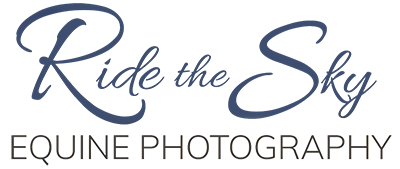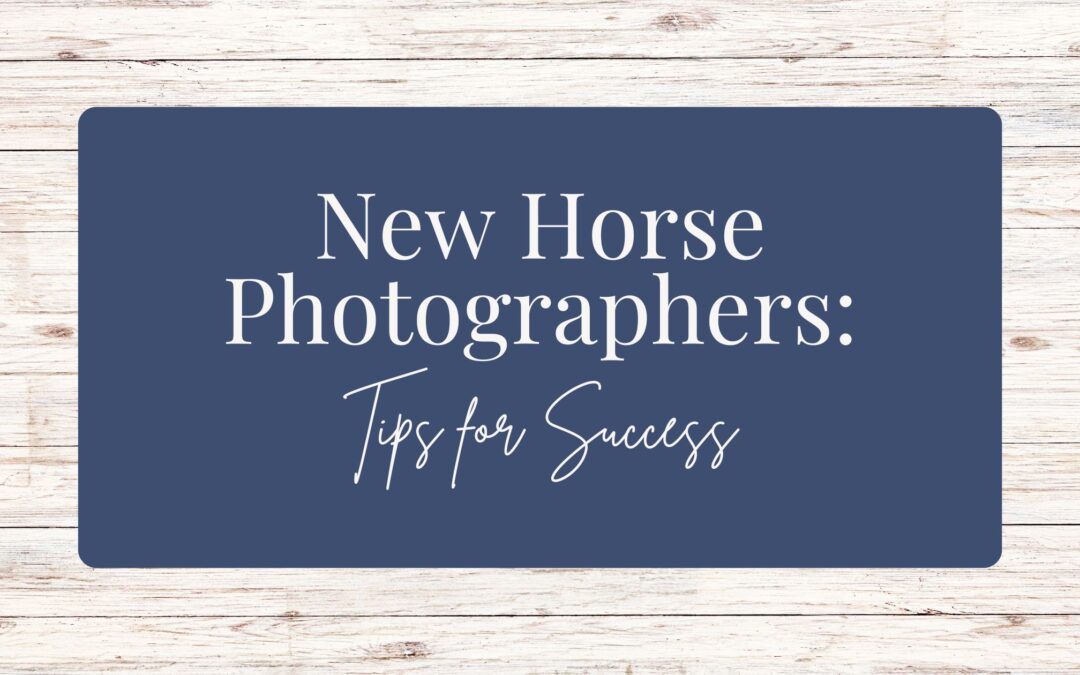Q&A for New Horse Photographers: Start Strong, Stay Inspired
So, you’re dreaming of building a career capturing stunning horse photography sessions? Great choice! But let’s be real—it’s not all gallops, golden-hour glows, and pony snuggles. Running a successful horse photography business takes planning, grit, and more than a sprinkle of chaos-handling skills.
To help you along your journey, I’ve gathered some of the most common questions new horse photographers ask.
What’s Your Biggest Tip for Starting Out?
This one’s easy: Get legal or get out.
If you’re accepting payment—even if it’s just enough to cover your Starbucks habit—you need to set up a legal business. Here’s what that involves:
- Contracts: A rock-solid, equine-specific contract is non-negotiable.
- Insurance: Cover your gear, yourself, and your clients with liability and equipment insurance.
- Taxes: Yes, they’re a pain, but skipping them? That’s a hard no, friend.
Being legit protects you, your clients, and your sanity. Plus, nothing screams “trustworthy professional” like having your business ducks in a row.
Should I Be a Sole Proprietor or an LLC When Starting a Horse Photography Business?
First things first: talk to a tax professional. Seriously. Everyone’s situation is different, and the last thing you want is to set up your business incorrectly.
That said, my business is an LLC, and here’s why:
- A sole proprietorship might be easier to manage, but it doesn’t protect your personal assets.
- An LLC provides a legal barrier between your business and personal finances.
Yes, setting up an LLC comes with some extra paperwork and fees, but the peace of mind is worth it. One rogue horse kick or unhappy client, and you’ll be glad your personal assets are shielded.
Moral of the story? Don’t skimp on legal advice. A good tax professional and a solid business structure can save you from future headaches.
What Insurance Do I Need?
If you’re working with horses, you need:
- General Liability Insurance: A $1–2 million policy is ideal.
- Equipment Insurance: If replacing your gear would break the bank, get it insured.
And here’s the thing: accidents happen. Horses kick, cameras fall, legs break, and sometimes it feels like chaos has a personal vendetta. Insurance gives you peace of mind and keeps your business protected.
Truth Bomb:
Don’t ever skimp on tax professionals or insurance agents. You don’t know what you don’t know. Let the professionals keep you protected.
Should I Follow Other Horse Photographers for Inspiration?
This might ruffle some feathers, but the answer is … maybe?
Here’s why you might NOT want to follow other horse photographers:
- Comparing yourself to others can be a one-way ticket to Imposter Syndrome City.
- Your business is unique—don’t let someone else’s strategy throw you off course.
- Social media is a highlight reel. You’re not seeing the late nights, missed dinners, and countless mistakes.
If the above sounds like you, instead, find inspiration outside the equine world. I follow wedding photographers, fine art photographers, and even landscape artists. It keeps my creativity fresh and helps me think outside the box when it comes to my equine photography.
What Gear Do I Need to Succeed?
Let me break it to you: it’s not about the gear. Gasp!
Sure, you need tools that fit your goals. Shooting for large-scale prints? You’ll need a camera that handles high resolution. Love indoor arenas? Prioritize low-light capabilities. Want to shoot horses without distortion? Long focal lengths are your bestie!
But the magic lies in your skills. Know your gear inside and out, and let your creativity shine. For the record, I shoot with a Canon R5. But, I also use my trusty Canon 5D Mark III. That last one? I will probably never get rid of that DSLR. It’s a workhorse.
Truth Bomb:
It’s NEVER a good idea to build your business 100% on a platform that you don’t control.
Do I Really Need a Website?
Yum, yes, you absolutely need a website.
Building your business, any business. solely on social media is like building a house on quicksand.
Algorithms shift, platforms die (RIP, MySpace), and, most importantly, you don’t own your audience.
A website (and an email list…but that’s another blog post) is your digital home—a space you control where potential clients can find you, book sessions, and fall in love with your work.
Pro Tip: Use your website to collect emails for your newsletter. That way, you can keep your audience engaged no matter what happens on social media.
How Do I Stand Out in a Crowded Market?
By being you. Seriously.
Stop trying to copy other photographers and start leaning into what makes you unique.
Your personality, style, and approach will attract the clients who vibe with you. And trust me, there’s enough business to go around.
How Often Do You Have Your Gear Serviced? And Where?
I’m a Canon girl through and through, so my cameras go straight back to Canon for servicing. Their Professional Services Membership Program is worth every penny, even if you’re just starting out.
Since the nearest decent camera store is a two-hour drive (suburban life, right?), I prefer to ship my gear directly to Canon. I schedule routine maintenance for cameras and lenses once a year, but let’s be honest—working with big animals means accidents happen. A horse kicks over your tripod or you drop a lens in the mud, and suddenly, it’s an emergency repair situation.
Sony and Nikon have programs similar to Canon. You can find them here:
Pro Tip: Don’t skimp on servicing your gear. Keeping it in top shape not only ensures better results but also extends its life.
Should I Get a Photography Degree?
Honestly? If you’re just starting out, skip the photography degree and go for a business or marketing degree instead.
Why? Because running a photography business is 80% running an actual business and 20% photographing. Amazing photographers often struggle to make ends meet, while those with solid business skills thrive—even if their work is just okay.
If you want to master photography, consider workshops, internships, or mentoring programs (like mine!). Learn the craft while you build the business skills that will keep you in the game long-term.
Truth Bomb:
There are amazing photographers who don’t make any money
&
There are mediocre photographers killing it solely because they understand business and marketing
Do You Shoot RAW or JPG?
I shoot RAW. 90% of the time.
RAW files give me the flexibility I need, especially since most of my work ends up as large-scale wall art or heirloom albums. RAW retains all the detail and allows me to make precise edits without sacrificing quality.
Now, when it comes to photographing fast-moving horses under unpredictable lighting, such as most horse events, I usually opt for JPG. The smaller file sizes and faster processing speeds can be a lifesaver in those situations.
But for the kind of work I normally do? RAW is the only way to go.
What Do You Use for Photo Storage?
Let’s be real: as a professional photographer, photo storage isn’t optional—it’s a necessity. Losing your work isn’t just inconvenient; it’s a nightmare. That’s why I err on the side of caution (read: I’m a little paranoid) and use a Synology NAS system.
For added peace of mind, I have cloud storage as well. There are several different companies out there that offer this service.
I have used both BackBlaze and Carbonite in the past. I haven’t personally used CrashPlan but have heard good things about it.
Bottom line? If your storage plan doesn’t include redundancy, you’re one bad day away from chaos. Don’t let that be you. Do you due diligance and make sure to pick the best fit for your needs and budget.
Ready to Build Your Dream Photography Business?
Not quite ready? No problem. Join the Ride the Sky Herd for exclusive tips, tricks, and behind-the-scenes insights sent straight to your inbox. Let’s make magic—and a thriving business—together.
Betsy Bird, Cr. Photog., CPP, of Ride the Sky Equine Photography spends her days doing insane things to make animals look at her. Clearly, she’s desperate for attention. Outside of acting like a total goofball, she invests in growing her business, mentoring photographers, dealing with her teenagers' angst, and hanging with Nitro, the best dog ever. She also tries to spend some time educating and entertaining aspiring photographers by teaching and blogging about whatever catches her fancy at the moment.
Betsy has earned her Photographic Craftsman degree from the Professional Photographers of America (PPA) which honors photographers who contribute to the photographic industry through speaking, mentoring, and publishing. Betsy is also a Certified Professional Photographer (CPP) with PPA. The CPP designation is held by fewer than 2,500 photographers nationwide and is a hallmark of consistency, technical skill, artistry, and professionalism.
Additionally, she serves on the Board of Directors for the Professional Photographers of East Tennessee (PPETN) and the Tennessee Professional Photographers Association (TNPPA). She is also a professional member of the Equine Photographers Network (EPN).
Betsy's award-winning work has been featured in a variety of publications and is found throughout homes and stables in the United States. She is also the co-author of the book, Equine & Equestrian Photography Poses that Sell: The Ultimate Guide to Posing Horses & Humans. She has also been featured on Scenic Trend, the Profitable Photographer Podcast, The Business Animal Podcast, Chatter Magazine, Cowgirls with Cameras Podcast, the Chattanooga Times Free Press, the Chattanoogan, and the Focal Points Podcast to name a few.
Ride the Sky Equine Photography is based in Chattanooga, TN, Ride the Sky Equine Photography works on location in Tennessee, North Georgia, and beyond. With a strong background in entrepreneurship, brand building, goal setting, time management, and business workflows, Betsy is an expert in her field (which isn’t that surprising given how much time she actually spends outstanding in a field...get it?)

